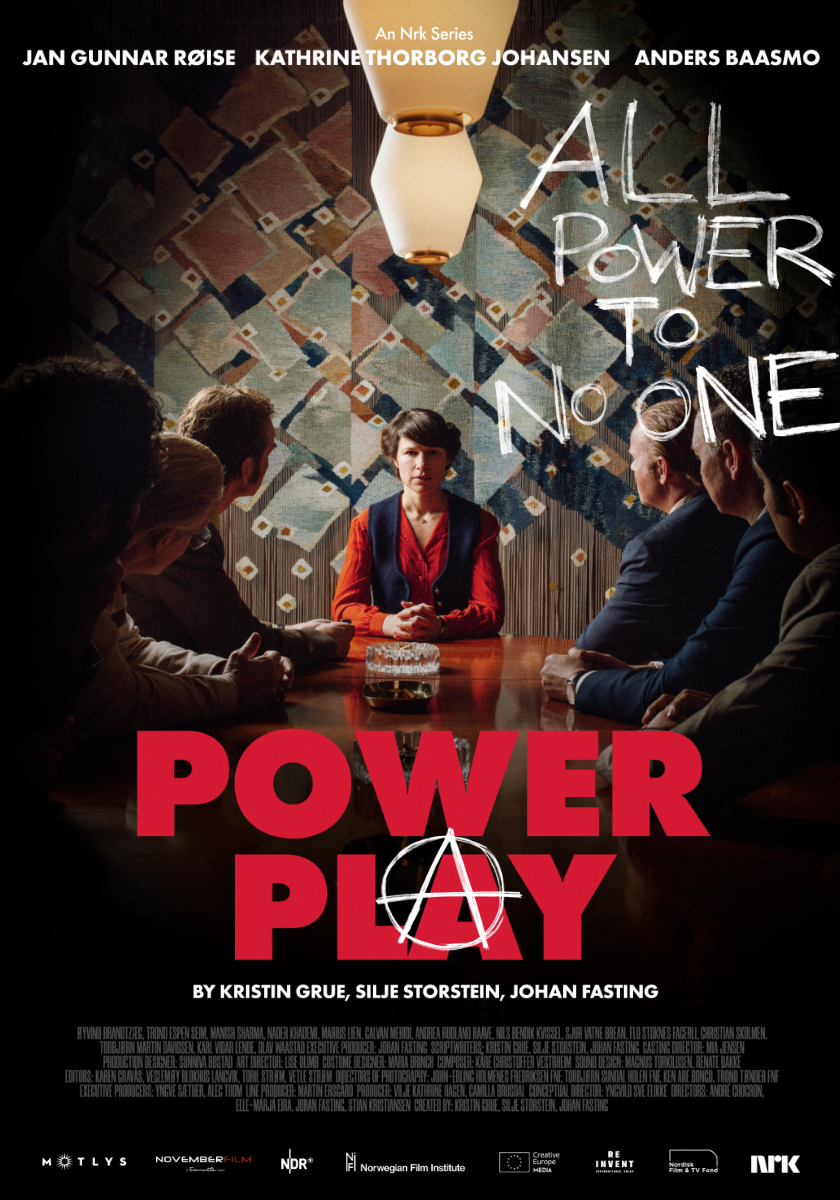Norwegian political drama Makta (Power Play) breaks with tradition to dramatise the rise of Norway’s first female prime minister through a blend of period and contemporary elements. DQ sits down with the creative team behind the series to find out more.
It’s unusual for a factual drama to be described as having a “bad memory” of the events it portrays, but Norway’s Makta (Power Play) isn’t your average series.
A political drama charting the rise of the country’s first female prime minister in the 1970s, it blends mockumentary-style camerawork and talking heads with an anarchic soundtrack to dramatise a key moment in history.
But what makes Makta stand out further from its genre peers is that the series – said to be based on “truth, lies and a bad memory” – sets its period-dressed characters against the backdrop of modern-day Norway.
Produced by Motlys and Novemberfilm for Norwegian pubcaster NRK, the show has gained fans even before its local launch. It had its world premiere earlier this year at French television festival Canneseries, where it was named best series and also won the prize for best music, and has been nominated in the best TV fiction category at this year’s Prix Europa awards on October 27. Distributed internationally by Reinvent Studios, Makta will launch on NRK on October 29.
In fact, it was the broadcaster that encouraged creators Silje Storstein (Dome 16), Kristin Grue (Delete Me) and Johan Fasting (Home Ground), who also write the series together, to pursue the show’s offbeat, radical tone.
“It was kind of madness on their part to suggest it,” Fasting tells DQ. “If they had made something like The Crown with Gro [Harlem Brundtland, the real-life former prime minister of Norway], it would play really well with audiences, so to take a chance on something that’s so different, all credit to them for giving us that trust.
“Norway, Sweden and a lot of other countries have made a lot of ‘We’re in the 70s and this is what happened and listen to the soundtrack’ kind of shows. Both creators and audiences are anxious for something a little bit different now.”
Read the full interview here.

